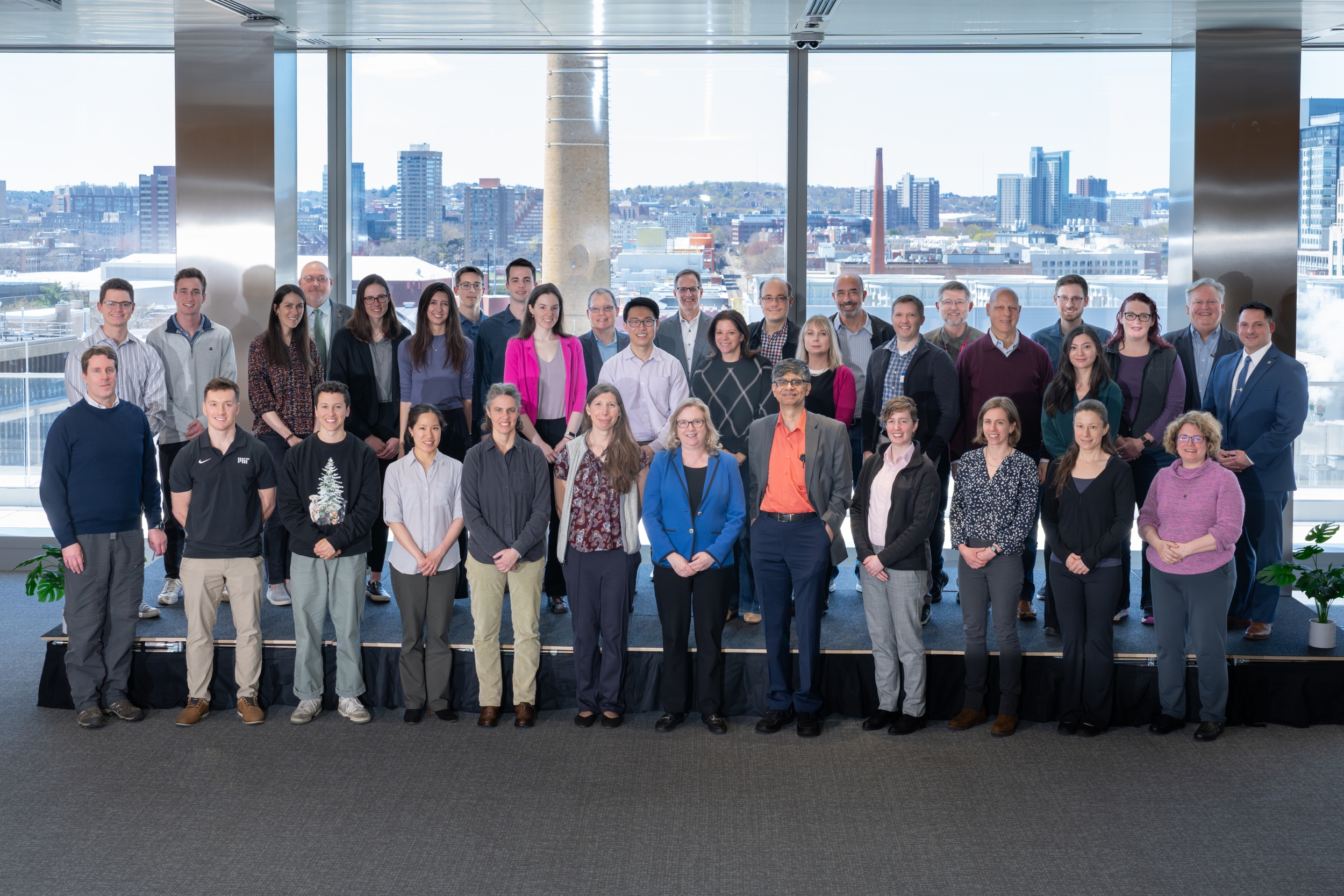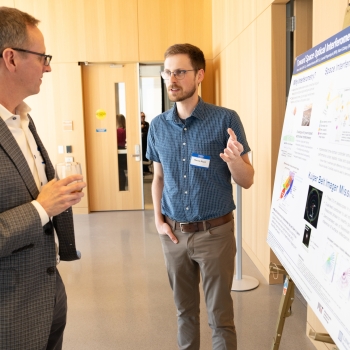Lincoln Scholars and Military Fellows gather for yearly luncheon
In April, MIT Lincoln Laboratory staff, MIT faculty, and students met at the MIT Schwarzman College of Computing in Cambridge, Massachusetts, to celebrate the achievements of Lincoln Scholars and Military Fellows program participants. The annual event celebrates the two programs, which give Laboratory staff and military personnel pursuing graduate education the opportunity to further their research studies, as well as the collaborative research efforts between Lincoln Laboratory and MIT campus.
Alexander Hubert, the Regional Mission Director - Authorizing Official for the Eastern Region, Industrial Security of the Defense Counterintelligence and Security Agency, was this year's keynote speaker. He shared vivid anecdotes that underscored the importance of treating data securely from the outset of a program.
After Hubert's talk, several students presented their work, and a lunch and poster session followed.
Lisa Baer from the Laboratory's Cyber System Assessments Group pursued dual MS degrees in technology and policy and electrical engineering and computer science through the Lincoln Scholars program. She enrolled in the program in order to bridge her understanding of the challenges that arise when applying academic research in operational settings.
"Through this program, I was able to connect with experts across numerous domains, deepening my technical understanding and broadening my conceptual tools for problem solving," Baer says. "I anticipate that my education will help me better approach the problems I work on at Lincoln Laboratory and offer more value to our sponsors."
Second Lieutenant Garrett Siemen is en route to becoming an engineer for the United States Space Force. Through the Military Fellows program, he is working with MIT campus and the Laboratory on an in-space assembly project for CubeSats. "I can already see the impacts that [this program] has had," he says. "I have had the amazing opportunity to improve my technical and critical thinking skills over the past year."
"The impact [of these programs] far exceeds the vibrant interactions and knowledge exchange during the degree process, with lasting ties as students move into their careers understanding where science and technology can make the largest impact," says Danielle Braje, leader of the Laboratory's Advanced Quantum Technologies Group.


